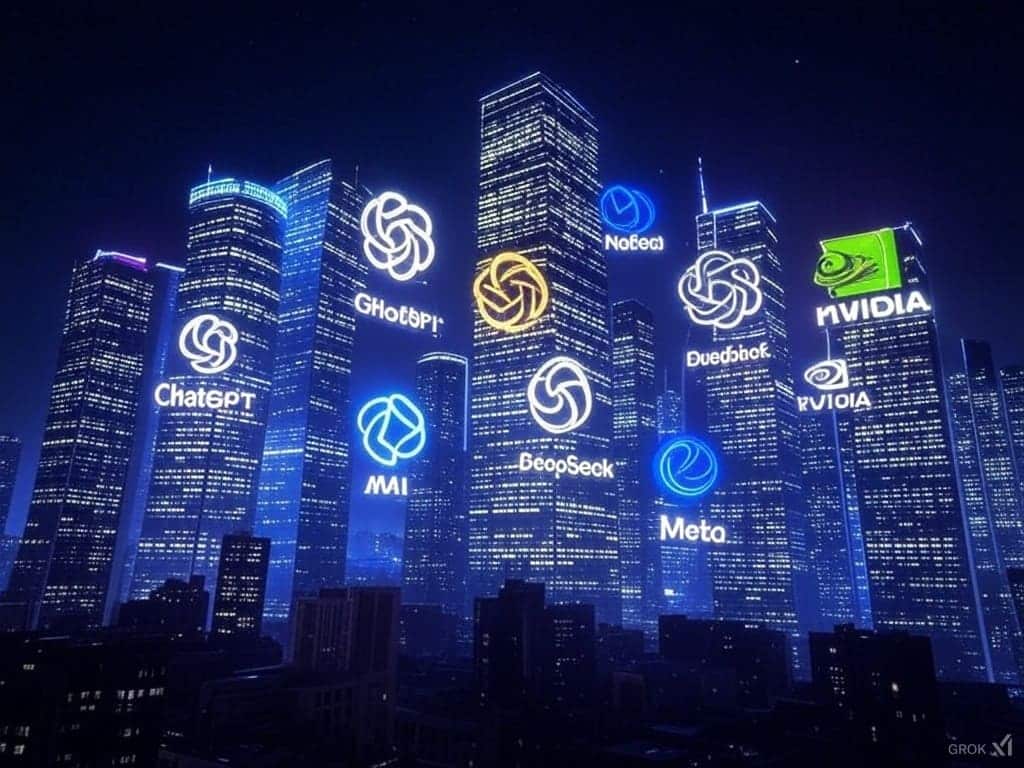Generative artificial intelligence has reached a turning point: what was once an experimental tool is now an essential part of the digital ecosystem. In this new landscape, ChatGPT has become the “Google of AI”, the place millions of users turn to daily for answers, content generation, and task automation.
OpenAI, the company behind the world’s most popular chatbot, achieved a new milestone in February 2025: over 400 million active users each week, solidifying its leadership in the artificial intelligence sector. In just two months since December 2024, the platform has added 100 million new weekly users, an impressive figure in an increasingly competitive market.
The Search Engine of the Future: ChatGPT Surpasses the Era of Links
For more than two decades, Google has been the undisputed king of internet search, providing users with lists of links organized by relevance. However, the emergence of generative artificial intelligence has changed the game. ChatGPT is replacing the need to navigate multiple websites, offering direct, personalized answers in real-time.
Unlike a traditional search engine, ChatGPT not only indexes information but also processes, understands, and synthesizes it to accurately respond to user needs. This capability has turned AI into the new gateway to knowledge, displacing the classic model of keyword-based searches.
The data reinforces this transformation: 70% of ChatGPT users utilize it as their primary query tool, according to recent studies. Whether to resolve technical questions, generate code, write articles, or enhance productivity, millions of people have integrated artificial intelligence into their daily lives.
Unstoppable Growth Despite Competition
OpenAI’s dominance in generative artificial intelligence has not been without challenges. In recent weeks, strong competitors have emerged, such as DeepSeek, an open-source model developed in China that has made a significant impact in the sector. Its ability to rival Western models at a lower cost attracted thousands of users, but a combination of collapses due to high demand and DDoS attacks led many to return to ChatGPT in search of stability.
Other alternatives, such as Grok, backed by Elon Musk, and Llama from Meta, have attempted to gain traction in the market. However, none have managed to replicate the ecosystem, scalability, and trust that OpenAI has built around ChatGPT.
Business Impact: ChatGPT is Already a Key Tool for Companies
Beyond personal use, ChatGPT is revolutionizing the way companies operate. Its ability to improve customer service, automate tasks, and optimize workflows has led to over 2 million businesses already paying for its services. This figure has doubled in the last six months, reflecting the increasing reliance of companies on artificial intelligence.
From startups to large corporations, the use of ChatGPT has expanded across sectors such as banking, education, healthcare, and logistics. AI is no longer just a support tool but a key strategic resource for enhancing efficiency and competitiveness.
In the realm of technological development, the adoption of ChatGPT has been even more evident. OpenAI has reported that the use of reasoning models has doubled in the past six months, while its o3-mini model has experienced fivefold growth since its launch in January.
Challenges and the Future of Generative AI
Despite its success, OpenAI faces challenges. Growing concerns about the security, ethics, and regulation of AI raise questions about the future of the sector. Additionally, the democratization of artificial intelligence through open-source models could disrupt the market balance in the coming years.
One of the main obstacles to the expansion of AI is the high cost of infrastructure, particularly the GPUs required to train and run advanced models. Many companies have noted that the high prices of graphics chips and the lack of technical expertise are significant barriers to widespread adoption of these technologies.
To address this issue, OpenAI and other tech giants have bet on cloud solutions, enabling more users to access advanced models without the need for large investments in their own hardware.
Conclusion: ChatGPT, the Standard of Artificial Intelligence
The success of ChatGPT confirms that generative artificial intelligence has changed the way people interact with information and technology. With over 400 million weekly users, OpenAI has established itself as the “Google of AI”, an indispensable platform for millions of individuals and businesses around the world.
However, the artificial intelligence market continues to evolve. As new models, technologies, and regulations emerge, OpenAI will need to continuously innovate to maintain its leadership. What is clear is that the era of AI-based search has already begun, and ChatGPT is its undisputed protagonist.
Source: Social Media News

